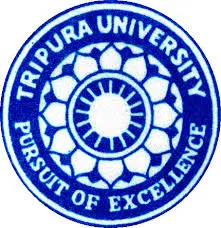A Ph.D. in Biodiversity and Conservation of Natural Resources is an advanced degree focused on the study of biodiversity and how it relates to different ecosystems. Students will explore natural landscapes and study how human activities affect their composition and abundance. They will also develop theories and methods to protect and conserve biodiversity. These PhD programs require a great deal of research, and are usually highly interdisciplinary in nature.
This degree equips graduates with the ability to critically analyze scientific data and make solid arguments on environmental issues. They will gain hands-on experience in conducting scientific field work with living species. Graduates will be well-qualified to work as ecologists, science officers, and research assistants. They can also pursue careers as marine biologists and waste managers. These students can also go into academia.
The duration of a Ph.D. in Biodiversity and Conservation of Natural Resources varies depending on the school. It is typically three years or less, with an option of up to six years, though this depends on the institution. Those who wish to study outside their home country can register as split or external students, and will be assigned local supervisors to guide them. The University's Research Development Programme is organized by the Graduate School and provides access to a diverse array of lectures, workshops, and research projects.
Ph.D. in Biodiversity & Conservation of Natural Resources Eligibility
Candidates who want to take admission in Ph.D. must have a post graduate degree in Biodiversity & Conservation of Natural Resources and its relevant discipline with at least 55% marks from a recognized university and must have passed the national level entrance examination or university level entrance examination. National level entrance exam like UGC NET / UGC CSIR NET / GATE / SLET or University entrance exam consisting of written test and personal interview.
The Benefits of a Ph.D. in Biodiversity and Conservation of Natural Resources
The Ph.D. in Biodiversity and Conservation of Natural Resources allows students to specialize in many different areas of research, which gives them a broad knowledge base. Students will learn how to analyze scientific information and support their positions on environmental issues. In addition, students will conduct practical research and make scientific observations on living species. Graduates can pursue careers in ecologists, wildlife biologists, and conservation assistantships. These professionals also work in the fields of waste management and sustainable development.
A Ph.D. in Biodiversity and Conservation of Natural Resources can provide you with a competitive advantage in a field that is highly sought after. You will develop a deeper understanding of how people value biodiversity and use it to shape environmental policies. The research you do will help to identify key threats to biodiversity and protect it. You will also develop the necessary skills to become a successful conservation biologist.
With a Ph.D. in Biodiversity and Conservation of Natural Resources, you will develop the knowledge and skills to effectively implement changes in conservation practice. This degree will provide you with the skills to understand how people's values and perceptions of the value of biodiversity influence their decisions in environmental conservation. In addition, you will gain valuable knowledge that will be useful in your field.
The Career Opportunities of a Ph.D. in Biodiversity and Conservation of Natural Resources
A Ph.D. in Biodiversity and Conservation of Natural Resources opens up many career options in the area of conservation. A professional in this field can pursue academic research, government and non-profit organization staff positions, and consulting with environmental firms. They may even work as an environmental educator. These options can be incredibly rewarding. However, there are a few disadvantages to pursuing a PhD in this field.
A Ph.D. in Biodiversity and Conservation of Natural Resources prepares students to analyze scientific information and formulate solid arguments on environmental issues. Throughout the program, students will gain practical field experience and have the opportunity to conduct research on live species. Graduates can pursue careers as ecologists, field research assistants, science officers, and law enforcement specialists. Some jobs in this field are in environmental law and policy, pollution prevention and management, or marine biology.
The degree equips students to analyze and support sound arguments on environmental issues. Students will receive hands-on training in the field, as well as the opportunity to observe and conduct experiments on living organisms. These professionals may go on to work as conservation scientists, ecologists, or research assistants. Some of these professionals also pursue careers in environmental planning, contaminated land management, or sustainable development.
PhD in Biodiversity and Conservation of Natural Resources
As the field of natural resources continues to grow in importance, PhDs in biodiversity and conservation offer a range of career options. These graduate degrees equip students with the skills necessary to analyse scientific data and make strong arguments about environmental issues. Many of the courses include practical training, which enables students to conduct experiments on living species. The course prepares graduates for careers as ecologists, scientists, and research assistants. They can also work as conservation officers, waste managers, and sustainable development experts. They can also work as marine biologists and pollution prevention professionals.
Students completing this degree will learn about the role of conservation in human wellbeing. This study will prepare students for careers in the fields of environment, health, and welfare. They will learn how to protect endangered species, protect the environment, and reduce human-elephant conflict. Their research will help to shape policies and practices that will ensure a good future for our children.
The field of conservation involves studying natural landscapes and species. Biodiversity refers to the diversity of species, including microbes. Hence, this degree is closely connected to environmental science, animal sciences, and natural resource management. A typical syllabus for a degree in biodiversity and conservation of natural resources includes topics like ecology and biodiversity, landscape, and evolution.
Ph.D. Research Programme duration
The Ph.D. in Biodiversity & Conservation of Natural Resources course is minimum 3 years and maximum 5 in duration. This depends on the university offering the course.
Fees for research programme for Biodiversity & Conservation of Natural Resources
The average fee for Ph.D. in Biodiversity & Conservation of Natural Resources degree is between INR 50000 and INR 500000.
 5 Years
5 Years
 PhD
PhD
 Research
Research














 back
back